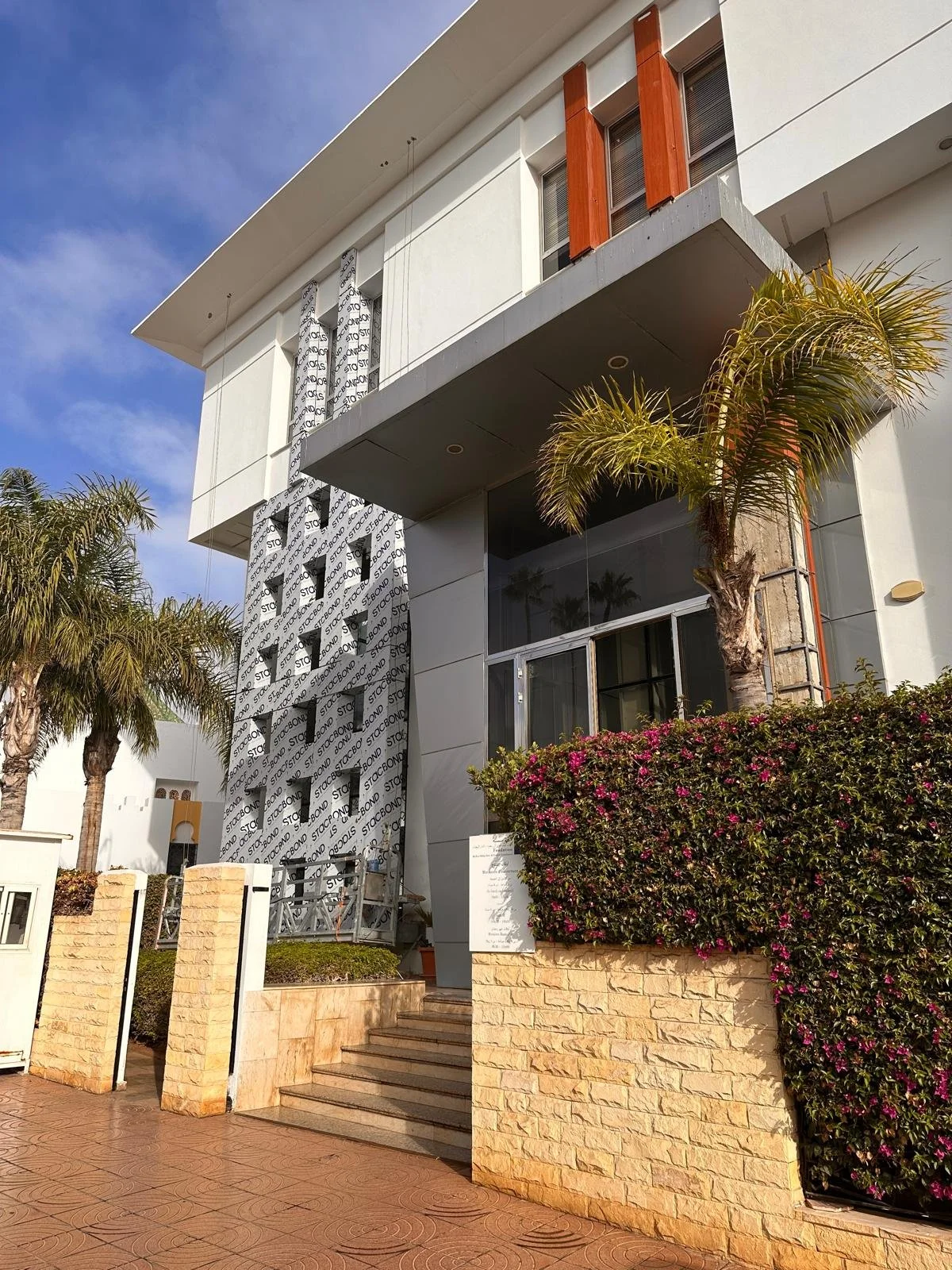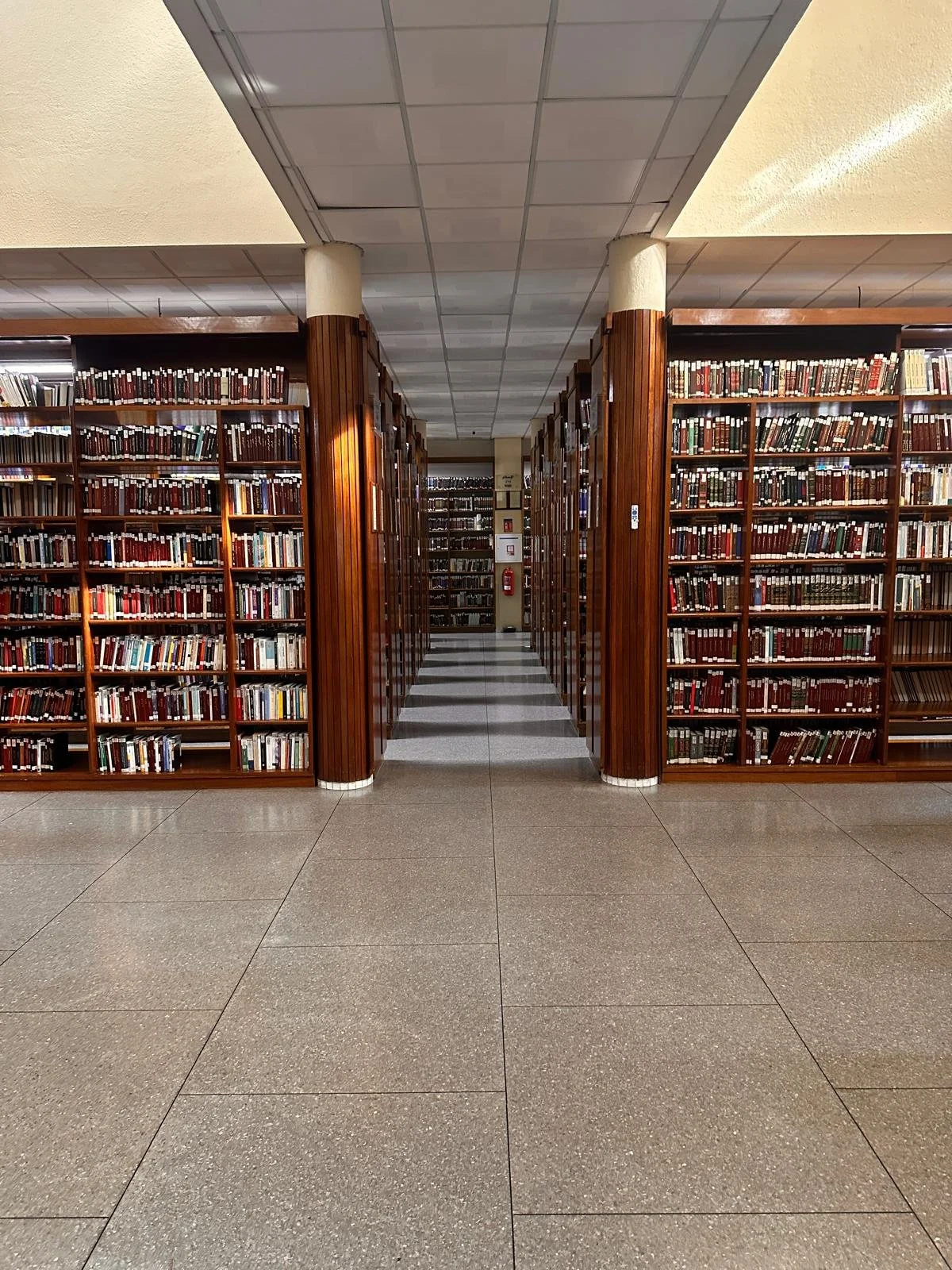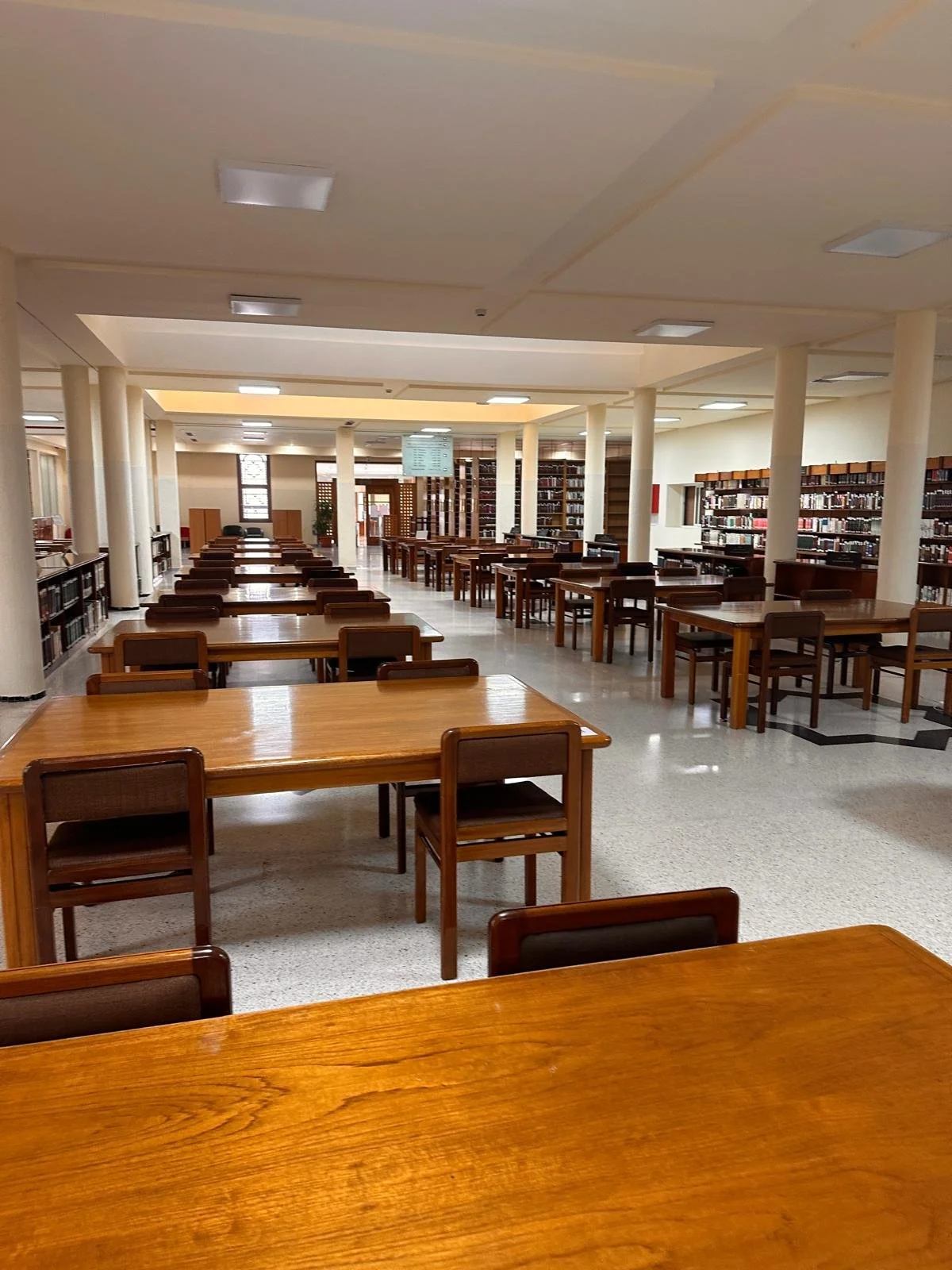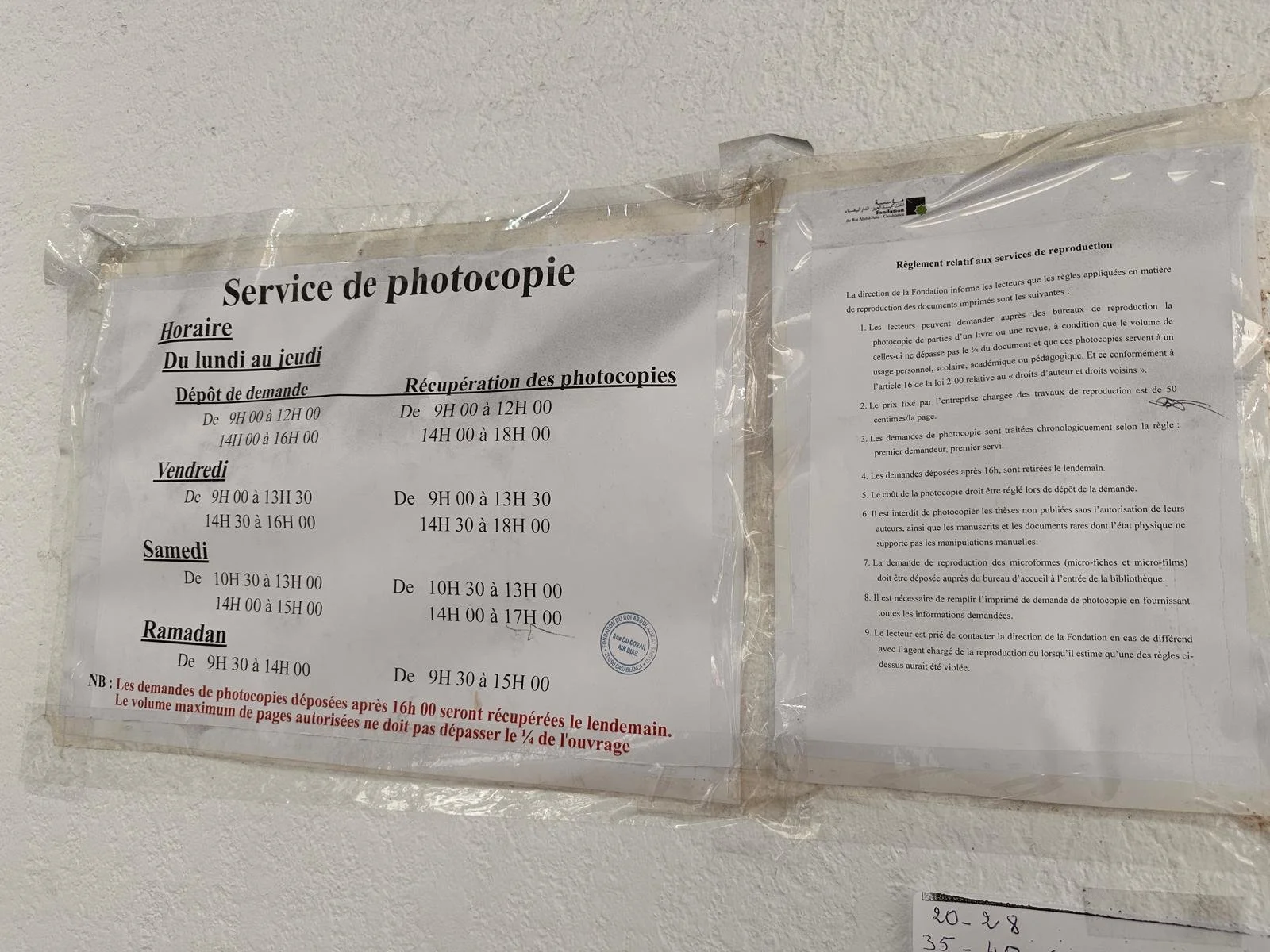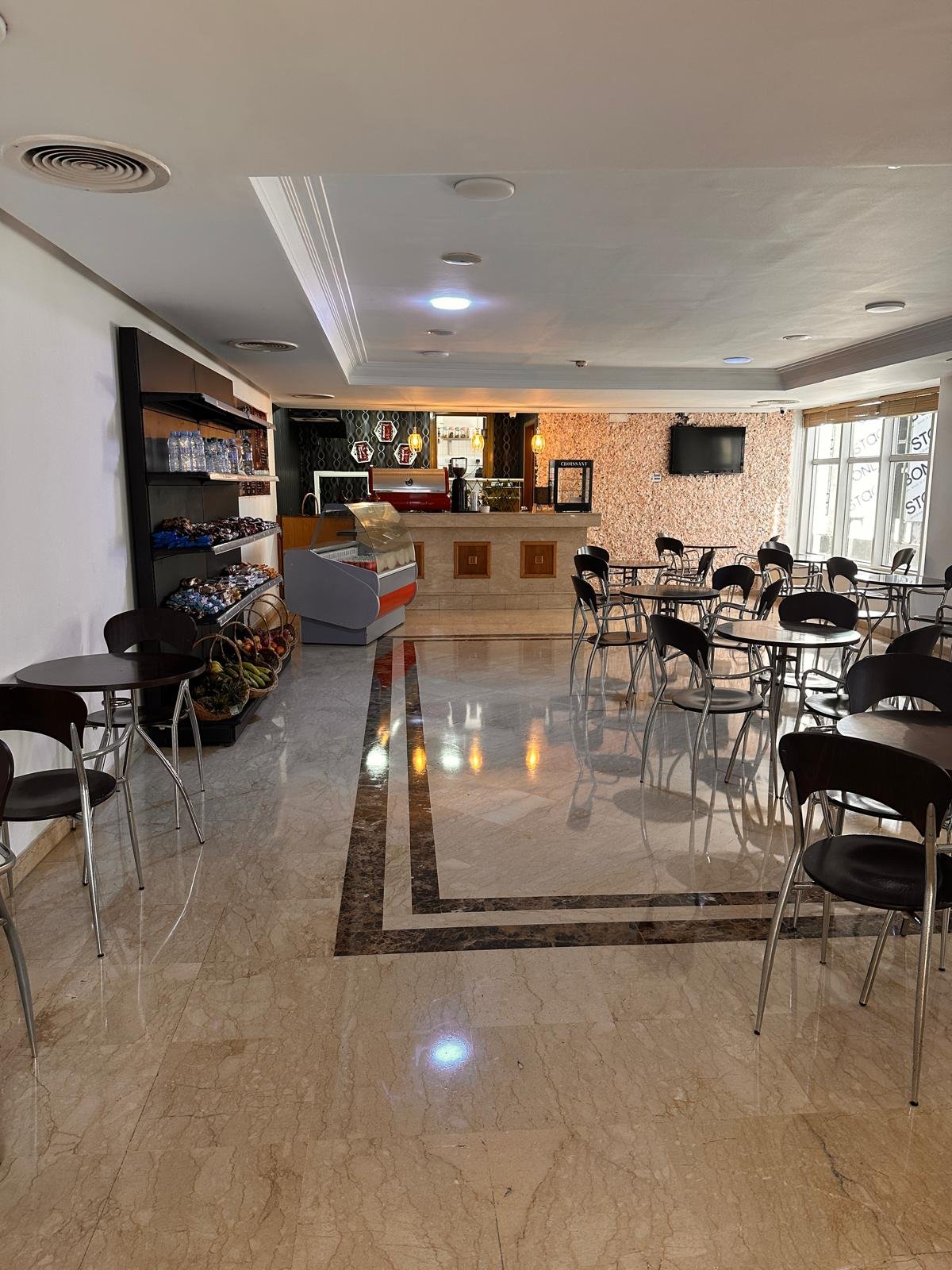King Abdul-Aziz Al Saoud Foundation
Written by Mathias Ghyoot and Athina Pfeiffer (2025)
INtroduction
The King Abdul-Aziz Al Saoud Foundation for Islamic Studies and Human Sciences was established in Casablanca in the early 1980s with the aim of serving as a reference library in Morocco for the study of Islam. Its holdings include an extensive reference collection, along with numerous periodicals and monographs across various disciplines such as law, sociology, religious studies, and history.
The Foundation also preserves around 600 manuscripts from the private libraries of Mohamed Abed Al Fassi (curator of Al Qaraouiyine Library from 1956 to 1962), Mahjoub Ben Issa Lamrabet, and Mohamed Al Ouafi Al Iraqi. In addition, it houses approximately 400 lithographs, a large collection of postcards and photographs, and the archives of two prominent 19th-century Moroccan families associated with the Makhzen, comprising more than 15,000 documents.
The Foundation’s library is open Monday through Friday from 9am to 6pm, and on Saturday from 10:30am to 6pm. Please note that some services—such as access to periodicals and copying—are unavailable during the lunch break. During Ramadan, the library opens at 9:30am and closes at 3pm.
Location: Google Maps
GOING THERE
The Foundation is located on Rue du Corail next to al-Saoud Mosque in Ain Diab and close to the Corniche. You can get there either by taxi (we recommend using the app InDrive), bus (number 9 and 11 both stop close to the Foundation), or tramway stopping at Ain Diab Terminus followed by a 30 min. walk.
GETTING IN
Enter through the main door, pass the security officer, and proceed to the registration desk on your right. There, you will be asked to complete a form and present your passport in order to receive a daily pass. If you intend to visit for an extended period, you may request a one-year library card for a fee of 100 MAD upon presentation of an ID, proof of affiliation, and a passport-sized photo.
Bags must be left at the Consigne located on the ground floor behind the elevators. You may bring your laptop, notebook, and a water bottle.
To access the library, go to the first floor using either the stairs or the elevators, and present your daily pass or reading card to the guard at the entrance. The library consists of two Reading Rooms, organized by research topics: the Ibn Khaldun Reading Room (first and second floors) and the Ibn Rushd Reading Room (first floor). The periodicals section, as well as the manuscript and lithograph section, are housed within the Ibn Rushd Reading Room.
Finding your material
You can access the online library catalog either on your personal computer via the library’s open Wi-Fi or on one of the library’s computers available in the Reading Rooms.
Ordering your material
Monographs and reference works are freely accessible in both Reading Rooms, which are organized thematically—so feel free to browse the stacks. We recommend noting the shelfmarks on a piece of paper before going to the stacks. Materials may not be removed from the Reading Rooms; once finished, please leave them on a table.
Some rare monographs, as indicated in the catalog, are not available in the stacks. To consult these, you will need to approach the librarian, Mr. Al-‘Arabi, in Ibn Rushd Reading Room. His office is located at the back of the stacks area, around numbers 200-400. Please remember to return the rare material directly to him once you are finished.
For periodicals, visit the periodicals section at the entrance of the Ibn Rushd Reading Room, where a librarian will retrieve the requested items for you. You need to fill out a slip to retrieve your material, so keep your shelfmarks handy. Once you’re done, return the periodicals to the desk.
High-resolution images of all manuscripts, lithographs, and the 19th-century archives are available on the Foundation’s website. If you wish to view a manuscript in person, you must submit a prior request by email to the library’s directory, providing a justification for consulting the manuscript (the manuscript’s codicological and paleographic features, for instance). Once approved, you may consult the manuscript by contacting Mr. Al-‘Arabi in the Ibn Rushd Reading Room, who will retrieve it for you. The Foundation’s website also hosts a selection of digitized manuscripts and lithographs from other Moroccan libraries, such as the National Library in Rabat.
Ordering scans
Copying services are located in both the Ibn Rushd Reading Room, as well as the two sections of the Ibn Khaldun Reading Room. Their operating hours differ from those of the library (see picture). Photocopies can be ordered at a fixed rate of 0.50 MAD per page. Note that the library adheres to copyright regulations, which means only portions of a work may be copied.
Food and well-being
The building is spacious and equipped with free Wi-Fi. Restrooms are available on the first floor outside the Reading Rooms. There is a cafeteria on the ground floor where you can purchase drinks and snacks. You can also venture outside the Foundation, cross Boulevard Corniche, and head to the Anfaplace Mall where you’ll find many food options—we recommend grabbing a pizza by the ocean at Nolla.
The entrance to the King Abdul-Aziz Al Saoud Foundation for Islamic Studies and Human Sciences in Casablanca
The Stacks
The Ibn Rushd Reading Room
Opening hours for copying services
The cafeteria

